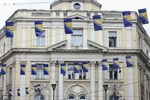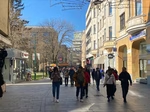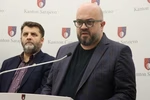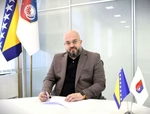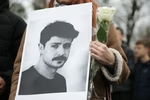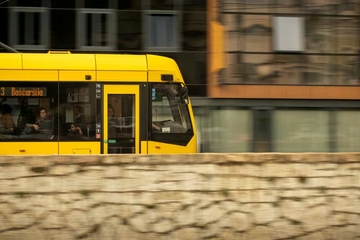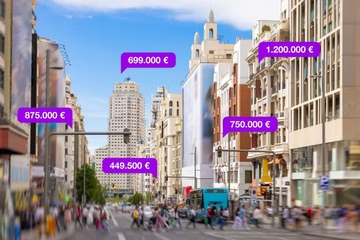
After a twelve-year deadlock, political leaders signed an agreement on Wednesday enabling the local elections in the southern city of Mostar to take place for the first time since 2008.
The agreement was signed by Bakir Izetbegovic and Dragan Covic, the leaders of the Democratic Party Action (SDA) and the Croat Democratic Union (HDZ BiH), in presence of foreign ambassadors and Mostar's local politicians.
Addressing the reporters, Covic said that one part of the deal treats the issue of local elections in Mostar and the City Statute, while another part refers to the State Election Law provisions that ensure legitimate representation of Bosnia's constituent peoples in the state institutions.
“A new Statute has been defined and it will be adopted in the first next session of the Mostar City Council. Now it is certain that the vote will take place in Mostar within the local elections,” he said, adding that the two parties will submit into parliamentary procedure the proposal of changes to the Election Law concerning Mostar the next week already.
According to Covic, the second part of the agreement obliges the leaders to start the talks on the Election Law within three months and to agree on the details within six months. The changes should be adopted by the State Parliament by the end of next year.
The local elections in the City of Mostar were last held in 2008. Two years later, the Constitutional Court of Bosnia and Herzegovina acted upon motion of Croat representatives in the state Parliament, assessing as unconstitutional parts of the Bosnia’s Election Law which refer to the City Statute.
The court tasked the state Parliament in 2010 to amend the Election Law regarding the provisions which treat the electoral rules in that city but this did not happen to date and Mostar elections remain the subject of political disagreements, mostly of two main parties in this city, the SDA and HDZ BiH which signed the deal today.
The talks that intensified over the past weeks were held under auspices of the international community in Bosnia and Herzegovina.
“This is a big day for Bosnia and Herzegovina and this city,” Izetbegovic said addressing the reporters after the meeting.
Explaining the agreement on Mostar elections, he said they accepted a model that would “proportionally follow the number of voters in constituencies.”
“The agreement itself was drafted in a way that Mostar will be ruled jointly. That means lots of blockades, slowed down processes but that's how it is at this moment. I am not sure if this generation of politicians will live to see a more normal Statute but some in the future will,” he added.
As for the winners in these talks, he said those are “the citizens and voters of Mostar.”
The changes to the Election Law that would affirm the principle of the civil, which the leaders agreed to harmonise by the end of the next year, is not a simple yet not impossible mission, according to Izetbegovic who hopes for the help of the Venice Commission's experts.
EU ambassador Johann Sattler, who was among the foreign officials that witnessed the signing of the document, welcomed the agreement, thanking everyone for the cooperation.
“Holding the free democratic elections and local elections in the City of Mostar is one of the 14 priorities that the European Commission set for local authorities (in its Opinion on the country's membership application,” said Sattler.
The EU welcomes the commitment of the two political parties to resume the work on the remaining issues including the elimination of discriminatory provisions of the Election Law, which will enable all citizens to elect and be elected, he added.
US Ambassador Eric Nelson, UK Ambassador Matthew Field, the international administrator in Bosnia, High Representative Valentin Inzko, and Head of the OSCE Mission in Bosnia Kathleen Kavalec also attended the Mostar meeting.
Kakvo je tvoje mišljenje o ovome?
Učestvuj u diskusiji ili pročitaj komentare





 Srbija
Srbija
 Hrvatska
Hrvatska
 Slovenija
Slovenija








